"Zen has been a deep influence in my life." — Steve Jobs
I've always been fascinated by Steve Jobs' early years.
Before he became a reality-bending magnate, he experimented widely: dropping acid, meditating, traveling to India, following gurus, adopting fruitarianism, and even joining a hippie commune.
Clearly, he was searching for something.
Whatever it was, he found it in Zen (evident in everything from his minimalist design to his Zen teacher officiating his wedding).
… But why Zen?
To find out, I lived in a Zen center for 4 months.
There, I meditated for two hours daily, learned from a Zen master, participated in retreats, and (since I run a book startup) read everything I could on Zen.
I went deep down the rabbit hole, and have reemerged to share what I've learned.
So let's dive in 🙂
Sidenote: Interestingly, as I wrote this, I noticed another tech titan/ Zen fan… Marc Benioff's new Twitter profile picture shows him meditating in a traditional Japanese Zendō. Cool little coincidence.
Why Zen?
Meditation's benefits are well-known, affecting everything from attention to pain perception.
So let's skip that part.
"More than 80% of [people I've interviewed] have some form of daily mindfulness or meditation practice." — Tim Ferriss
Instead, let's dive into what makes Zen unique.
But first, it's important to note that Zen (like all contemplative practices), isn't without its critiques.
However, the positives far outweigh the negatives.
Here's a look at both sides:
The Negatives
The harmless criticism is that Zen can be confusing (especially for beginners), since it's filled with paradoxes and ambiguity. But more on this later…
A more serious concern is its lack of emphasis on morality. Brian Daizen wrote an entire book on why this is bad, so I don't have to.
The Positives
Zen's strongest point is its simplicity.
After Buddhism reached Japan, much was stripped away. Gone were complex iconographies and spiritual elements of Buddhism (like karma, rebirth, chakras, etc…).
Zen zeroes in on one thing; training your mind.
Sidenote: A smaller bonus is Zen's delightful aesthetic, especially compared to the somewhat garishness of traditional Buddhism. Zen reflects the elegant simplicity of Japanese design (few things in life are more beautiful than Japanese gardens).
The Path of Zen
Now we get to the fun stuff.
If Zen was a video game, it'd have three levels:
- Level 1: Jōriki — The power of concentration.
- Level 2: Kenshō — Experiencing your true nature.
- Level 3: Mujōdō no taigen — Perfecting your character.
Unlocking each level grants you a new "superpower."
Level 1 — Jōriki
A favorite among ambitious people.
Jōriki boosts your concentration. It sharpens two skills:
- Willpower: You'll be less swayed by distractions.
- Concentration: You'll be able to focus more intensely.
"To accomplish any task, it is necessary to concentrate the mind totally on that one goal. […] Any person who accomplishes outstanding feats has doubtlessly developed great powers of concentration." — Kōun Yamada
"[Steve Jobs] could easily put in ten- to sixteen-hour days, six to seven days a week. And at least once a week in the evenings he was also being supercharged and focused by a Zen master's more metaphysical practices for building power. East fueled West and West fueled East." — Chrisann Brennan
Level 2 — Kenshō
This is the center of the bullseye.
It's also known as "self-transcendence," "losing the sense of self," or (as your buddies who did Ayahuasca in Peru like to call it) "ego death."
… Let me explain.
When you say "self," you're referring to this sense that you're a subject of your experience.
In other words, you don't feel like you are a body, you feel like you have a body.
You know the feeling (like you're inside your head, just behind your eyes).
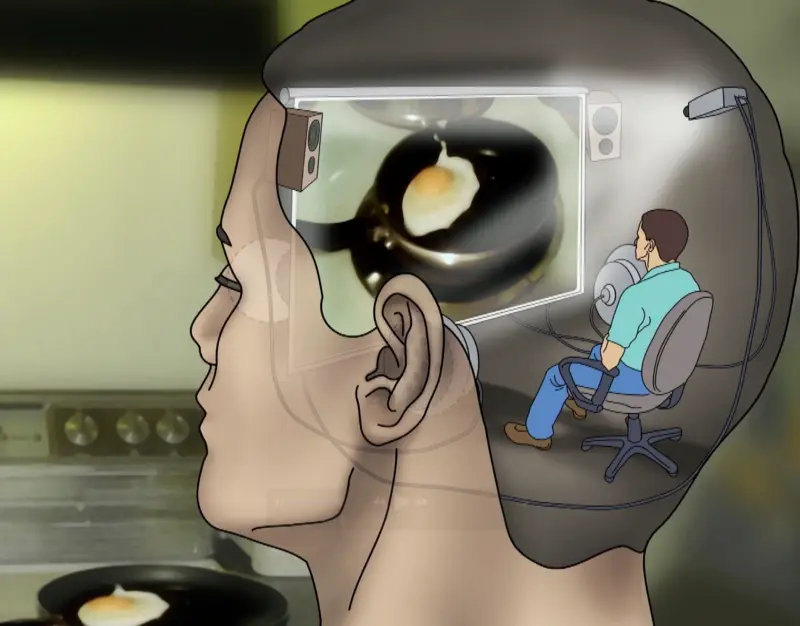
Daniel Dennett calls this the
cartesian theater
.
But that feeling is an illusion. There is no "you."
It's both a physical illusion and a psychological one:
- Physical: You change all the time. Your cells renew every seven years. So, not a single part of your body remains constant throughout your life (for more, watch this 2min video).
- Psychological: Think of a city. Any city. Whatever you answered (e.g. Paris), notice how you didn't choose that thought? It just appeared out of nowhere. Meditate long enough and you'll realize all your thoughts work this way.
Sidenote: It helps to think of your mind as boiling water, and each thought bubbles up out of nowhere.
But, proving there's no "self" isn't the point. You need to feel it to get all the benefits.
That's where Zen comes in.
Follow its guidelines, and you'll experience selflessness. Zen calls this "seeing one's true nature" (Kenshō).
Sidenote: Why lose your "self"? Because this is what every meditation tradition is trying to teach you. Learn it, and you'll no longer be hostage to your thoughts/ suffering.
"It was as if a flashbulb had gone off in my skull, and that's what it suddenly illuminated: no me. The idea of 'me' had been just that — an idea. Now it had burst like a bubble. The relief was indescribable. All the worrying, all the fretting — and all along there had been no one home." — Henry Shukman
Level 3 — Mujōdō no taigen
The Kenshō glow fades fast.
Your worries and fears? They'll barge back in. Yup, that pesky "self" of yours will have returned.
To really hold onto Kenshō, you need to keep practicing Zen.
"As long as the mind doesn't act in accordance with what it has experienced in seeing into our own nature, what was seen will become mere knowledge and will fail to be integrated into our lives; it will fail to become our flesh and blood." — Kōun Yamada
How to Practice Zen
There are two ways: (1) Zazen, and (2) Everyday Zen.
1. Zazen
Za-zen literally means "sitting Zen."
… Essentially it's meditation.
Choose two times a day (like 7 AM and 5:30 PM) to sit up straight on a chair or cushion for 25 minutes.
Your focus? Your breath. Count it or silently say "in" and "out" as you breathe.
Stick with it until your Zen teacher thinks you're ready for Level 2. Where they'll give you what's called a Kōan.
Kōans 101
Kōans are... Sigh…Remember when I said people complain Zen is a quagmire of paradoxes? Blame it on kōans.
At first glance, they're little riddles that make no sense. Here, try one yourself:
"You know the sound of two hands clapping, but what is the sound of one hand?"
Don't look for a rational answer, you won't find it. In fact, none of the 1,700 (!!) Zen kōans make sense.
… And that's the whole point.
Kōans aren't about understanding concepts like "selflessness" rationally. They're all about experiencing it.
How do you experience it? By shutting down your rational brain.
This is why kōans are nonsensical. They aim to derail your rational brain.
Stick with a kōan, and eventually, your rational brain gives up. That's when a different part of your brain awakes and bam — you experience selflessness.
In fact, it's said kōans are "dark to the mind, radiant to the heart." (they're kind of like Bob Dylan songs — inscrutable, yet your soul just "gets" them).
"[Steve Jobs] knew the equations that most people didn't know: Things led to their opposites." — Lisa Brennan-Jobs
2. Everyday Zen
Zen is not a religion.
Not only does it lack worship objects, but in fact it's the complete opposite! All Kōans are about super ordinary things: dogs, bridges, mountains, etc…
That's because Zen believes that the present moment is miraculous.
Most of us don't live this way. Our minds wander during activities. But Zen training changes that. It teaches us to focus on the now.
Walk with purpose. Cook with focus. Eat attentively.
This approach, known as Shoshin (or beginner's mind), makes the mundane magical.
It revived the part of me that, as a child, found joy in simple acts (like cloud-gazing).
"There are more things in heaven and Earth, Horatio, than are dreamt of in your philosophy." — William Shakespeare
Conclusion
Zen training is slow. Be patient.
Initially, it may seem uneventful. But trust me, progress is happening.
Zen advises envisioning your true nature as a large crystal ball. Currently, it's veiled by a thick crust of dirt.
Daily practice is like rubbing away, little by little, that crust.
"Even if you don't arrive at seeing into your own nature, your life situation will gradually improve and the problems of daily life will begin to resolve themselves. This is not theoretical; it is a fact. I'm sure [I am] not the only one to have experienced this." — Kōun Yamada
Bonus — Books!
If you liked this post and want to explore Zen further, here are four books I recommend:
1. Zen: The Authentic Gate — Kōun Yamada
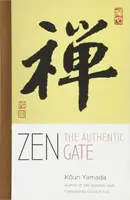
Recommended by
Kevin Rose
(who helped create
the audiobook
).
My top pick for understanding Zen, written by a respected master.
2. One Blade Of Grass: Finding The Old Road Of The Heart — Henry Shukman
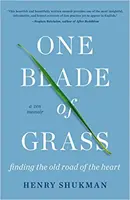
Recommended by
Kevin Rose
and
Sam Harris
.
My Zen teacher's autobiography. It offers a personal glimpse into one (very eloquent) person's Zen journey.
3. Zen Mind, Beginner's Mind: Informal Talks On Zen Meditation And Practice — Shunryu Suzuki
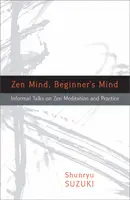
A favorite of
Steve Jobs
and
Marc Benioff
.
Truth be told, not all of it was my cup of tea. But some ideas were incredibly impactful.
4. On Having No Head: Zen And The Rediscovery Of The Obvious — Douglas Harding
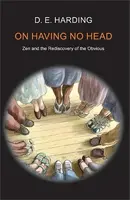
Recommended by
Jack Dorsey
and
Sam Harris
.
Super short (it only takes 1–2 hours to read!) And yet it has the best Kenshō description I've seen.
Comments
Did we miss something? Have feedback?
Help us improve this page by sharing your thoughts